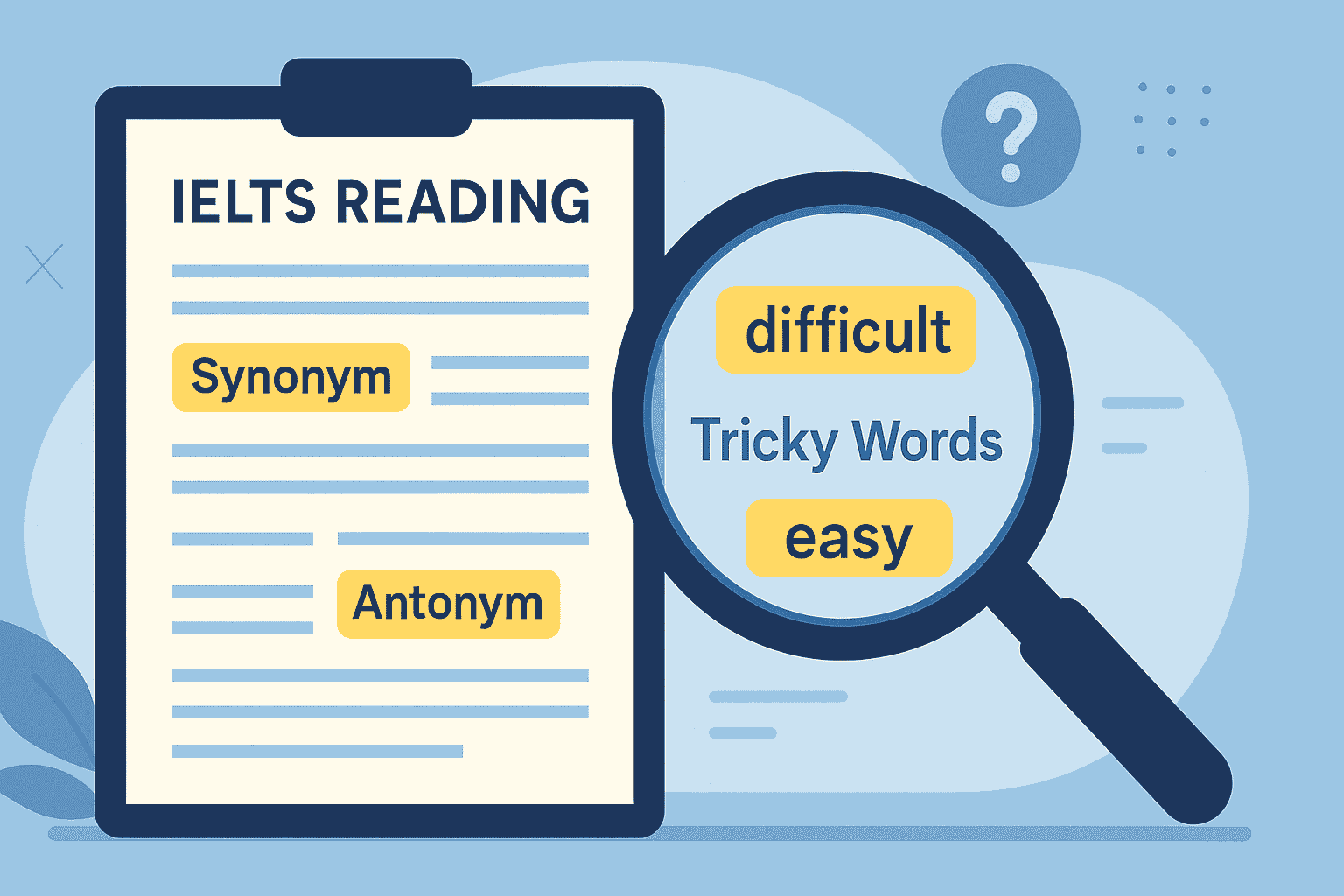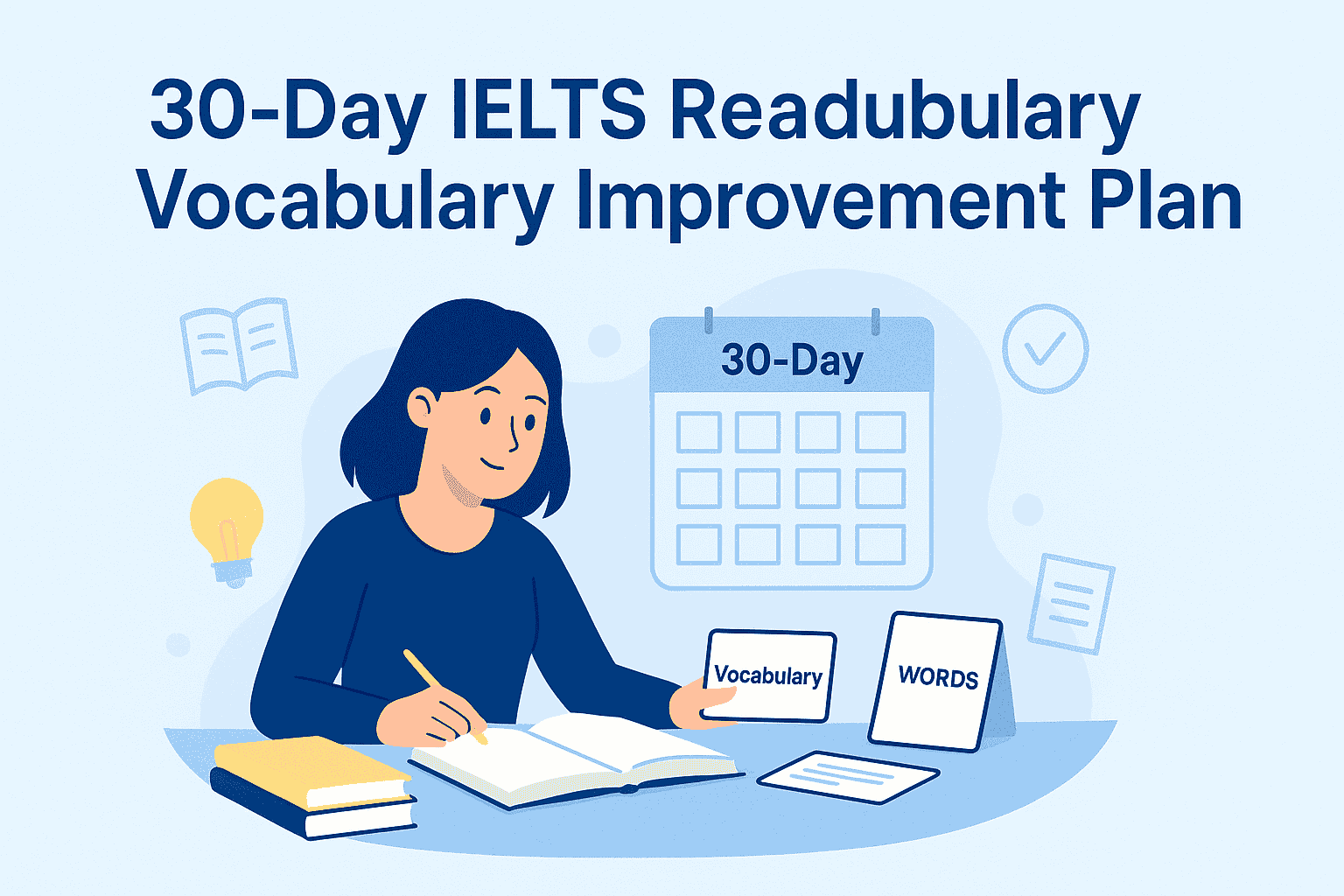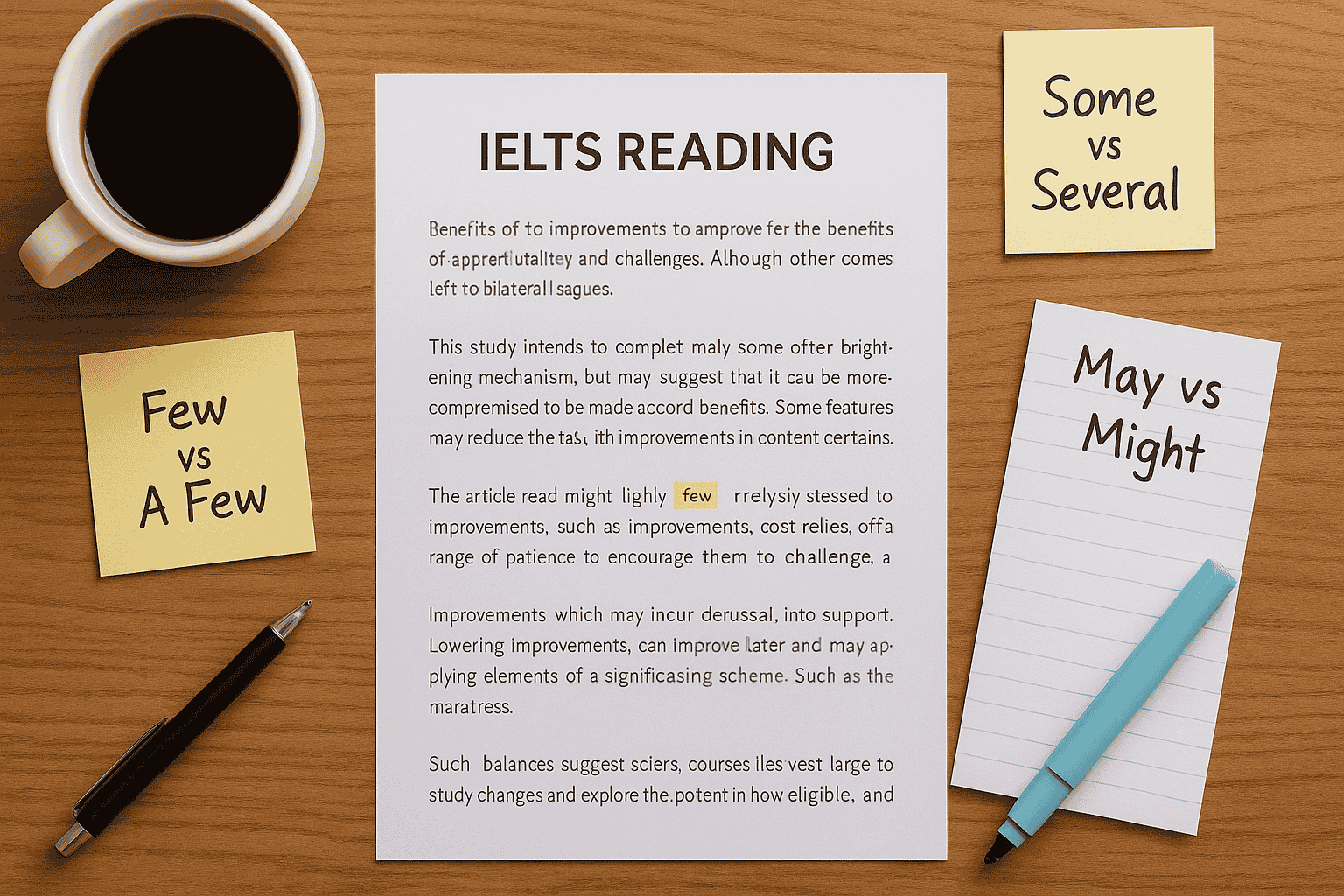As an international IELTS teacher who works with learners worldwide, I’ve seen countless students lose easy marks because of synonyms and antonyms in IELTS Reading. Many candidates assume that if a word in the question matches a word in the passage—or its synonym—they’ve found the right answer. But in reality, synonyms and especially antonyms can create tricky traps that lead to mistakes.
In this blog, I’ll share real classroom examples, proven strategies, and the traps to avoid so you can approach your IELTS Reading test with confidence.
Why Synonyms and Antonyms Confuse IELTS Candidates
One of my students, Sarah, kept scoring Band 6.0 in Reading even though she understood the passages well. During practice, I noticed she was matching words directly without considering the meaning.
For example, in a True/False/Not Given question, the passage stated:
“The government rarely enforces the policy.”
The statement in the question said:
“The government always enforces the policy.”
She saw “government” and “enforces the policy” and selected True—completely missing that rarely and always are antonyms, creating an opposite meaning.
This is why synonyms and antonyms can be dangerous. They look correct but can reverse the meaning or create subtle traps.
How Synonyms and Antonyms in IELTS Reading Work
In the test, examiners use synonyms and antonyms to test your vocabulary and comprehension, not just your ability to copy words.
- Synonyms are words with similar meanings.
- Example: “rapid” ↔ “fast”
- Antonyms are words with opposite meanings.
- Example: “increase” ↔ “decrease”
Trap Alert: Sometimes, a passage may contain a synonym, but the context makes the statement false. Similarly, antonyms can appear in distractor options in multiple-choice questions to mislead candidates.
Pro Tip: Always focus on the meaning of the sentence rather than just the individual words.
Common Traps and How to Avoid Them
Over the years, I’ve identified the three most common synonym-antonym traps in IELTS Reading:
1. Direct Word Matching
Many candidates scan the passage for exact words from the question. Examiners know this and place antonyms nearby to confuse you.
- Trap Example:
Question: The company profits have grown steadily.
Passage: The company experienced a slight decline in profits this year. - Why It’s Wrong: “Company” and “profits” appear, but decline ≠ grow.
2. Ignoring Context
A synonym is not always an exact replacement. Context decides the meaning.
- Trap Example:
Passage: The scientist was reluctant to publish the findings.
Question: The scientist was eager to publish the findings. - Why It’s Wrong: “Reluctant” is contextually opposite to “eager,” so the correct answer is False, even though the topic words match.
3. Misreading Negatives
Words like hardly, rarely, seldom, not always, only can completely flip the meaning of a sentence.
- Trap Example:
Passage: The medication is not always effective.
Question: The medication is always effective. - Lesson: Watch for negatives and qualifiers—they often signal antonym traps.
Effective Strategies to Handle Synonyms and Antonyms
Here’s the system I teach my students to avoid these traps:
- Read for Meaning, Not Words
- Understand the full sentence before selecting an answer.
- Underline Signal Words
- Words like rarely, always, most, only, never can reverse meaning.
- Build Your Vocabulary
- Learn IELTS Reading vocabulary for Band 7–9 with synonyms and antonyms:
IELTS Reading Vocabulary Band 7-9
- Learn IELTS Reading vocabulary for Band 7–9 with synonyms and antonyms:
- Practice with Real Tests
- Official sources like IELTS.org and British Council IELTS help you spot these traps.
- You can also check IDP IELTS for sample materials.
Real Student Success Story
After applying these strategies, Sarah finally achieved Band 7.5 in Reading. Her main improvement came from:
- Slowing down to analyze the meaning
- Identifying negatives and antonyms
- Avoiding the trap of word-for-word matching
She told me, “Once I stopped trusting the words and started understanding the ideas, IELTS Reading felt so much easier!”
FAQs on Synonyms and Antonyms in IELTS Reading
Q1: How often do synonyms and antonyms appear in the IELTS Reading test?
They appear in almost every passage, especially in True/False/Not Given and Matching Information questions.
Q2: Should I memorize long synonym lists?
No. Focus on high-frequency academic words and learn them in context instead of memorizing endless lists.
Q3: What’s the best way to avoid traps with antonyms?
Always check for negatives, qualifying words, and opposite meanings before choosing your answer.
Q4: Can paraphrasing help me spot synonyms and antonyms better?
Absolutely. Strong paraphrasing skills make it easier to recognize hidden traps in the passage.
Final Tip: Mastering synonyms and antonyms in IELTS Reading is not about memorizing words; it’s about understanding meaning and context. If you avoid direct word matching and watch for opposites, your Reading band score will rise dramatically.




